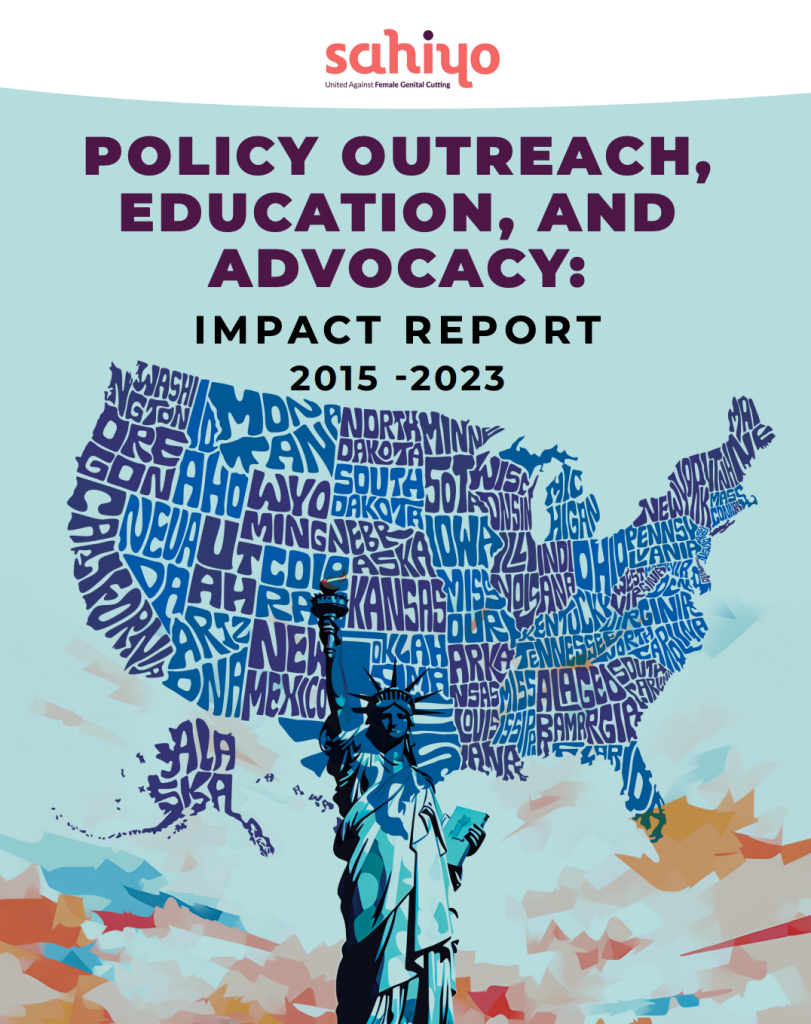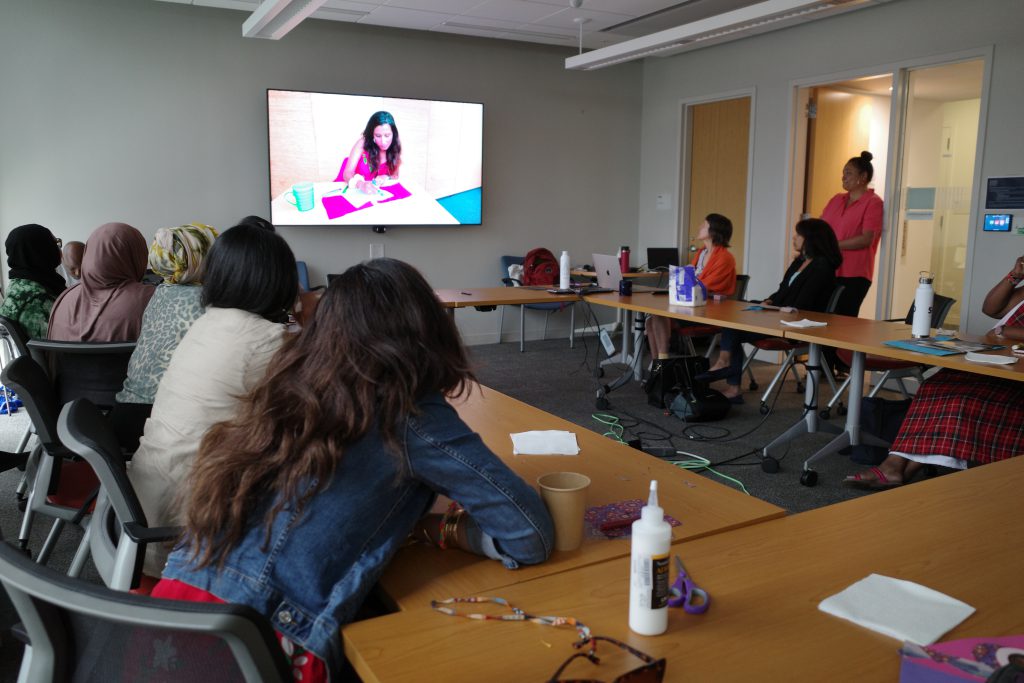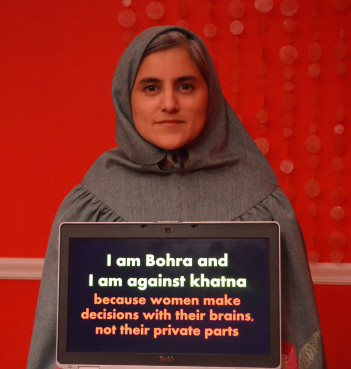Announcing a New Website for FGM/C Prevention & Response Project in Washington State!

Sahiyo U.S. and partners of the FGM/C Prevention & Response in Washington State project are thrilled to announce the launch of wafgmc.com, the new comprehensive resource hub for the project! This website is designed to provide essential information and updates on our initiatives in Washington (WA). On the site, you’ll find valuable educational resources, information on the legislative history of FGM/C in WA, and opportunities to get involved with the project. Designed to support professionals, community members, and survivors, this site ensures accessibility and engagement for all, with translation options available in various languages (such as Arabic, Spanish, French, and more). Lastly, take some time to visit our page on upcoming training opportunities. Here, you can find details about training sessions that Sahiyo U.S. and project partner the U.S. End FGM/C Network, are planning to host over the next year on various topics related to FGM/C prevention and response. You can also request a specialized training by completing the request form to hold an in-person or virtual training for your group or organization. For more information please visit wafgmc.com.
Sahiyo U.S. Releases New Impact Report: Policy Outreach, Education, and Advocacy Program

Policy work has been central to Sahiyo’s goal to end the practice of FGM/C and find ways to support survivors since our founding in 2015. Thus, Sahiyo U.S. is proud to publish, “Policy Outreach, Education, and Advocacy: Impact Report 2015-2023”, our newest report that reviews the work that Sahiyo U.S. has carried out and partnered with other organizations at the global, national, state, and local levels in geographies such as Massachusetts, Connecticut, Washington, Michigan, and New York City. Take a look at some of the highlights: Why We Engage in Policy Work: We recognize that to end FGC and support survivors, policies must be informed by and created in partnership with communities impacted by FGC. FGC is considered a social norm in practicing communities, and laws against FGC may help to prevent the practice by acting as a mechanism to shape the behavior of communities or individuals. Policies can be educational tools, deterrents, and influencers for psychosocial change. In guiding the creation of laws, communities can begin to realize that harmful practices – even those perceived to be steeped in culture and/or religion – should not be perpetuated. Furthermore, research indicates that to achieve maximum impact, policies should be developed holistically. This involves integrating community education and outreach components, alongside civil remedies for survivors, rather than relying solely on criminalization which does not fully address the larger goal of ending the practice. Policy Program Goals: Here are Sahiyo’s goals for our advocacy work: Educate frontline professionals (i.e. healthcare providers, social workers, childcare professionals, etc…), lawmakers, and constituents while also engaging them to support policies addressing FGC. Unite diverse stakeholders and establish shared concerns and connections related to FGC, fostering a collective impact and the creation of state-level coalitions dedicated to advocating for policy changes that address FGC. Uplift and include the voices of survivors in educating policymakers. Increase individual civic engagement in the legislative process and ensure that impacted communities have a voice in the creation of policies in order to prevent FGM/C and support survivors. By the Numbers: Program Impact from 2016-2023 3 state coalitions were formed. 2 states passed new legislation on FGC. 1 website was created for the Connecticut Coalition to End FGM/C. 2 Facebook pages were created for the Washington Coalition & Connecticut Coalition. 58 educational meetings held with legislators. 19 educational outreach webinars related to policy were hosted. 42 policy-related blog posts were posted on Sahiyo’s website. 2 action alerts created in partnership with UNICEF USA & Equality Now. To learn more, read the full report here.
Reflecting on Virtual and In-Person Sessions for Voices to End FGM/C Workshop 2024

Sahiyo completed our 2024 Voices to End FGM/C digital storytelling workshop, welcoming 10 new storytellers to our ninth cohort. Since 2018, this initiative has united over 80 survivors, advocates, and community members in sessions designed to empower participants to share their personal stories and experiences with FGC. This year’s workshop was held in a hybrid format, starting with two virtual sessions on May 28 and June 4. These initial online gatherings allowed participants to introduce themselves, share their experiences, and begin forming deep, meaningful connections. The virtual sessions provided a safe and intimate space for storytelling, laying the groundwork for the in-person sessions that followed on June 22-23 at the George Washington University Milken School of Public Health in Washington, D.C. Once everyone gathered in person, the excitement was palpable as participants, who had bonded over their virtual interactions, finally met face-to-face. The atmosphere was like a reunion of old friends, filled with warmth and familiarity, as the intimate stories that had already been shared created strong bonds among them. During the in-person sessions, participants engaged in various activities designed to deepen their reflections and creative expressions as they recorded the audio and pieced together the visuals for their digital stories. A particularly touching moment was when a participant gifted beautiful scarves to the workshop facilitators, as a way to express her gratitude for the workshop and the supportive community it cultivated. She explained that this gesture is a custom in her community in Ethiopia, symbolizing appreciation and connection. To capture the inner workings and overall essence of the workshop, we invited a videographer and photographer to document the event on our last day together. They took photos and b-roll footage to create a behind-the-scenes video about the workshop. Facilitators and participants were interviewed about their roles and experiences, and storytellers shared their hopes and aspirations for their videos. These interviews provided deeper insights into the personal journeys, the impact of the workshop, and how the Voices to End FGM/C program has grown over the past few years. Both the virtual and in-person sessions were transformative, allowing participants to engage in a supportive space where interactions fostered a strong sense of community and solidarity. We are excited to share their stories with all of you in the coming months, showcasing the participants’ courage and commitment to ending FGC. To learn more about the Voices to END FGM/C program click here.
Boston Jammaat Sends Letter Against Khatna/FGC to Members

